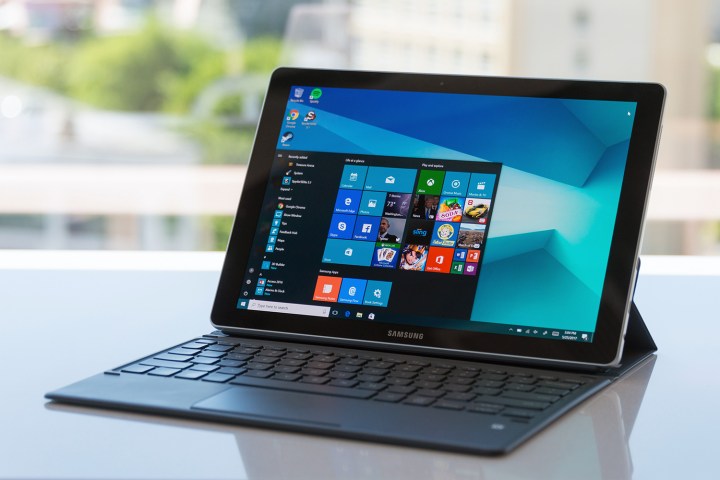
Qualcomm has hinted that a new Samsung device with a Snapdragon 850 chipset is in the works and considering the Korean manufacturer’s existing portfolio of Windows convertible tablets, it could well be a Windows 2-in-1. If true, this would put it in direct competition with the likes of HP, Asus, and Lenovo, all of which have their own Qualcomm-powered Windows laptops.
With battery life one of the main concerns of any new laptop buyer, a number of manufacturers have been looking to bring some of the highly efficient mobile processors produced by companies like Qualcomm to bear in the notebook space. The fact that its Snapdragon system on chips (SoC) happen to be pretty powerful also hardly hurts matters.
That’s doubly so with its newly announced Snapdragon 850, which is designed specifically to cater to the needs of modern, highly efficient laptops and convertible devices. Where the Snapdragon 835 was often found in smartphones too, Qualcomm claims that the Snapdragon 850 has been optimized for use with Windows PCs, including form factors that aren’t just your typical laptop.
Although Qualcomm hasn’t been drawn on what kinds of “innovative form factors” it expects its new 850 SoC to be used in, a new Samsung convertible tablet could be one of them, as per Engadget. If such a device were to make full use of the new Snapdragon chip’s capabilities, we could expect it to offer stellar battery life and full LTE data connectivity up to 1.2Gbps, as well as much greater performance than the Snapdragon 835.
Such features may be able to draw in more manufacturers to support the new chip design in their builds, as only a handful of Windows laptops were built on the Snapdragon 835 platform. With the likes of Intel touting new, battery-life extending technologies like low-power-draw displays, however, traditional laptops will be as competitive as ever with Qualcomm’s latest efforts. It will be interesting to see what Samsung and its contemporaries can do with the new hardware later this year.
Perhaps budgeting for better battery life is the best aim for those looking for laptop upgrades this year though, as Nvidia’s big announcement at Computex as that its new graphics cards aren’t likely to arrive until much later in 2018.



